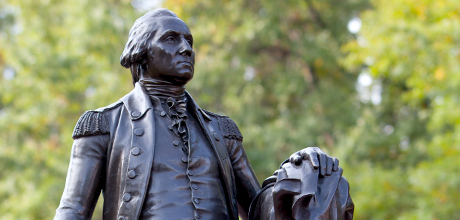The National Science Foundation has awarded researchers at the George Washington University, University of Washington and SRI International a $2.6 million, four-year grant to study redesigned Advanced Placement (AP) science courses.
Associate Professor Dylan Conger in George Washington’s Trachtenberg School of Public Policy and Public Administration is a co-principal investigator for the study. Associate Professor Mark Long of the Evans School of Public Affairs at the University of Washington will serve as principal investigator, and Raymond McGhee Jr. of SRI International will serve as co-principal.
The research teams will focus on both implementation and student outcomes resulting from the revised AP science curriculum developed by the College Board in collaboration with NSF and the National Research Council. The new curriculum is designed to emphasize the development of scientific inquiry skills rather than just the acquisition of limited knowledge across many content areas.
“The College Board has worked hard to align the AP science curriculum with college standards. Many students across the nation are taking AP science courses and policymakers, educators, parents, students and the College Board are eager to learn about the challenges that high school teachers face in implementing these courses, as well as how the courses affect students’ science skills and transition to college,” said Dr. Conger. “We look forward to conducting the first study in the nation to evaluate the AP curriculum using a randomized controlled trial, and we are grateful to NSF for its support.”
The study’s findings will provide the first experimental evidence on the effects of taking an inquiry-based AP science course and whether it impacts students’ educational progress and success in science, technology, engineering and mathematics (STEM) subjects. The findings will be useful for the College Board, educators and policymakers seeking to strengthen the teaching of science in high school.
“This study comes at a time when districts and schools are rapidly expanding their AP offerings and encouraging all students, especially those coming from underrepresented minority groups, to take challenging courses,” said Dr. McGhee, senior researcher in the Center for Education Policy at SRI International. “Since student success in science is so important to future success, we anticipate that our study results will inform educators and policymakers as they develop programs to support college readiness.”
As part of the research project, SRI will collect interview, survey, observation and administrative data from participating teachers and students. Researchers will analyze the data to provide feedback to educators.
Using a randomized control trial design, UW and GW researchers will determine the effects of inquiry-based content on students and whether it has an impact on their ability to conduct scientific inquiry and overall educational performance and aspirations.
The project will take place in 40 high schools across the nation, and the study will include more than 4,000 11th and 12th grade students.


